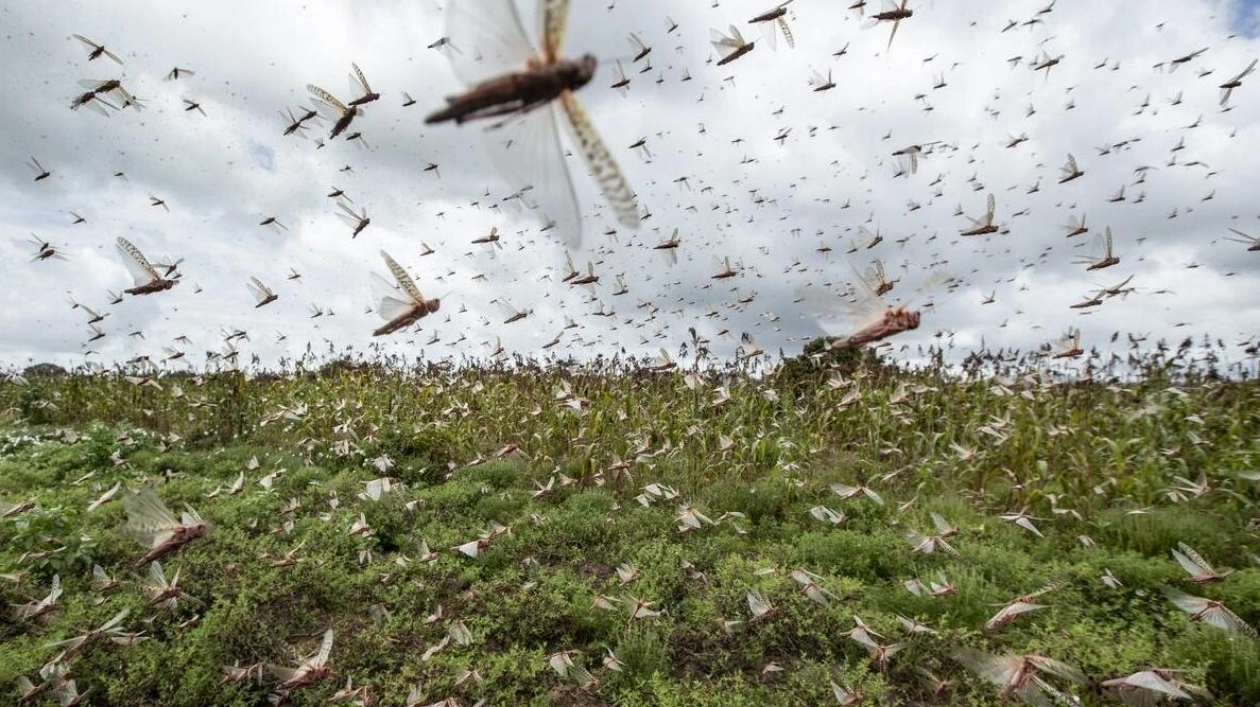As the UAE continues to enhance its agriculture sector through the 'Plant the Emirates' initiative launched by Dubai's ruler last month, various efforts to support farmers in expanding their agricultural activities and safeguarding their crops have come to the forefront. Among the threats to crops are desert locusts, which can cause significant damage. To combat this pest, the Ministry of Climate Change and Environment (MOCCAE) organized a training workshop on aerial spraying techniques.
These insects often migrate to the UAE from the Red Sea coasts, forming swarms that extend for several kilometers before moving to Saudi Arabia and then to the UAE, Syria, Iraq, Iran, Pakistan, and India. Known for their exceptional flying abilities, desert locusts attack agricultural areas during their migration. Additionally, locust swarms can consume vast amounts of vegetation and crops, leading to severe crop damage.
Dr. Mamoon Al-Alawi, Executive Secretary of the Commission for Controlling the Desert Locust in the Central Region, emphasized: "As one of the world's most damaging transboundary pests, the desert locust poses a significant threat to agriculture. Its capacity to rapidly destroy crops and pastures has resulted in more frequent and severe outbreaks in recent years." He further added, "The workshop offers a thorough understanding of the biology and ecology of this pest, along with the latest survey and control techniques. Our goal is to equip staff with the necessary knowledge and skills to effectively manage desert locust populations before they can form swarms and invade other areas, both within our country and in neighboring regions."
The training was conducted in collaboration with the Abu Dhabi Agriculture and Food Safety Authority (ADAFSA), the National Centre for Meteorology, and the FAO’s Commission for Controlling the Desert Locust in the Central Region. This initiative has enabled several UAE farmers to safely use chemical pesticides during aerial spraying, ensuring both their safety and the safety of the environment. The workshop also ensured that farmers are qualified to initiate aerial spraying operations when necessary.
Ahmed Khalid Othman, Deputy Director-General of ADAFSA for Operational Affairs and Executive Director of the Agricultural Affairs Sector, stated: "Through such initiatives, we aim to positively impact our agricultural productivity to achieve our national food security goals."
Source link: https://www.khaleejtimes.com






